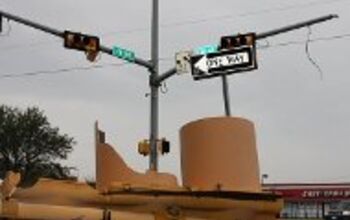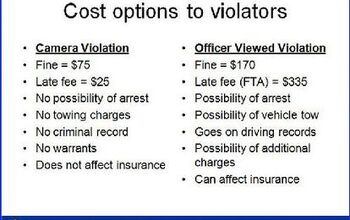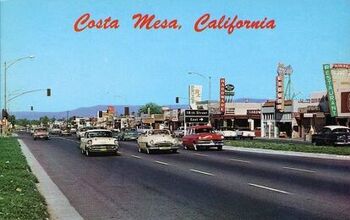Texas: Accidents Increase at Controversial Red Light Camera Intersection
Accidents rose after the installation of a red light camera at one major intersection in Baytown, Texas. The private company American Traffic Solutions began issuing automated tickets at the intersection of Garth and Baker Roads on March 21, 2008. Since then, safety has not improved at the controversial camera location.
According to a brochure published by the city, “red light safety cameras” were installed because, “There have been more than 1,000,000 accidents and more than 1000 deaths attributed to red light runners that occur each year in the United States.” Presumably, the cameras are meant to reduce the number of collisions and deaths at Baytown intersections.
This has not happened according to accident reports from all three monitored approaches of the Garth and Baker intersection from eighteen months before the installation of cameras compared to the same period afterward. Instead, the total number of collisions grew by 11 percent. Although proponents of cameras frequently suggest that the increase in rear end collisions (31 percent in this case) is offset by the reduction in “more serious” collisions, the data show, to the contrary, that there was no reduction at all in the number of serious injury accidents.
“Remember this when the city tells you it is about safety,” Baytown resident Byron Schirmbeck said. “Keep in mind this is the city’s own report.”
Schirmbeck requested the accident data after noticing that the city had claimed a 63 percent accident reduction at the intersection in its report to the state department of transportation. He found the numbers hard to believe.
Schirmbeck has also twice caught the city shortening the yellow warning time in order to increase ticketing revenue at the same intersection. In June, he challenged the city for using a 3.1 second yellow timing, a value that was set just before camera installation after a “synchronization study.” After the short yellow was exposed, the city was forced the city to increase the timing to the legal minimum of 4.5 seconds. In July, however, the city shortened the yellow to just 4.0 seconds and justified the move by installing a 40 MPH speed limit sign on the 45 MPH road. As of now, the city has replaced the lowered speed limit sign and increased the yellow to the bare minimum allowable time of 4.5 seconds.
Schirmbeck is circulating a petition to put the question of whether red light cameras should be banned to the voters. Earlier this month, College Station residents voted to ban automated enforcement. ATS deactivated its cameras in that city yesterday.
A copy of the accident data is available in a 1mb PDF file at the source link below.
Baker and Garth Accident Reports (City of Baytown, Texas, 11/24/2009)
[courtesy:thenewspaper.com]
More by The Newspaper
Latest Car Reviews
Read moreLatest Product Reviews
Read moreRecent Comments
- 3-On-The-Tree My 2009 C6 corvette in black looks great when it’s all washed and waxed but after driving down my 1.3 mile long dirt road it’s a dust magnet. I like white because dust doesn’t how up easily. Both my current 2021 Tundra and previous 2014 Ford F-150 3.5L Ecobomb are white
- Bd2 Would be sweet on a Telluride.
- Luke42 When will they release a Gladiator 4xe?I don’t care what color it is, but I do care about being able to plug it in.
- Bd2 As I have posited here numerous times; the Hyundai Pony Coupe of 1974 was the most influential sports and, later on, supercar template. This Toyota is a prime example of Hyundai's primal influence upon the design industry. Just look at the years, 1976 > 1974, so the numbers bear Hyundai out and this Toyota is the copy.
- MaintenanceCosts Two of my four cars currently have tires that have remaining tread life but 2017 date codes. Time for a tire-stravaganza pretty soon.


































Comments
Join the conversation
Sounds like they need safe following distance cameras next. And to stop changing the signal timing. Whatever it takes to catch speeding, tailgating, red-light running, illegal passing criminals would be great. We had a red-light runner total our car, probably total another one, and put a pedestrian in the hospital, a few years ago. Really, they ought to require black boxes with GPS in cars, with an external connector so after a crash the police can just link in and figure out what happened without searching the car.
I don't really care what the data is showing, they should be banned everywhere. I understand the towns/cities need money, but treating everyone like a criminal who needs to be watched constantly is not the way to do it.